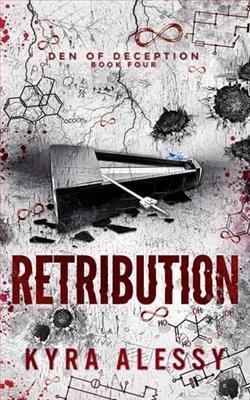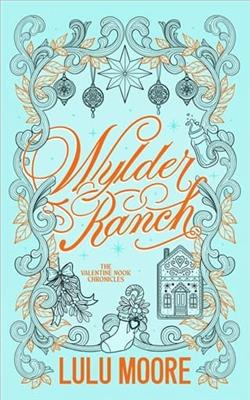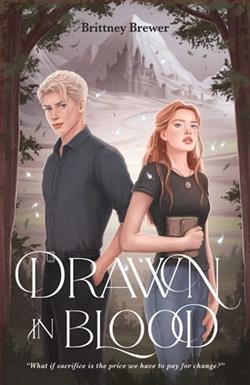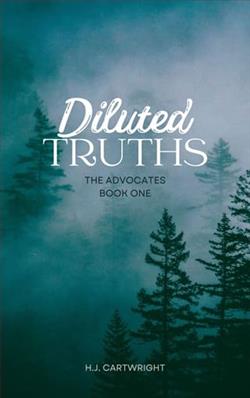Page 50 of Into the Water
come back here man, gimme my daughter.
Suddenly the weight lifted and I rose from the bed, furious. I stumbled into the hall and shouted for Lena to turn the music down. I lunged for her door handle and yanked the door open. The room was empty. Lights on, windows open, cigarette butts in the ashtray, a glass next to the empty bed. The music seemed to be getting louder and louder, my head pounded and my jaw ached, and I kept shouting even though there was no one there. I found the iPod dock and ripped it out of the wall, and at last, at last, all I could hear was the sound of my own breath and my own blood pulsing in my ears.
I returned to my room and phoned Lena again; when there was no answer, I tried Sean Townsend, but the call went straight to voice mail. Downstairs, the front door was locked and all the lights were on. I went from room to room, turning them off one by one, stumbling as though drunk, as though drugged. I lay down on the window seat, where I used to sit and read books with my mother, where twenty-two years ago your boyfriend raped me, and again I fell asleep.
I dreamed that the water was rising. I was upstairs in my parents’ bedroom. I was lying on the bed with Robbie at my side. Outside, rain thundered down, the river kept on rising, and somehow I knew that downstairs the house was flooding. Slowly at first, just a trickle of water seeping under the door, and then more quickly, the doors and windows bursting open, filthy water pouring into the house, lapping against the stairs. Somehow I could see the living room, submerged in murky green, the river reclaiming the house, the water reaching the neck of the Drowning Dog, only now he was no longer a painted animal, he was real. His eyes were white and wide with panic, and he was struggling for his life. I tried to get up, to go downstairs to save him, but Robbie wouldn’t let me, he was pulling my hair.
I awoke with a start, panicked out of my nightmare. I checked my phone, it was after three in the morning. I could hear something, someone moving around the house. Lena was home. Thank God. I heard her coming down the stairs, her flip-flops slapping against stone. She stopped, framed in the doorway, the light behind her illuminating her silhouette.
She started to move towards me. She was saying something, but I couldn’t hear her, and I saw that she wasn’t wearing flip-flops at all, she was wearing the heels she wore to the funeral, and the same black dress, which was dripping wet. Her hair clung to her face, and her skin was grey, her lips blue. She was dead.
I woke up, gasping. My heart was hammering in my chest, the banquette beneath me was soaked with sweat. I sat up, confused, I looked at the paintings opposite me and they seemed to shift, and I thought, I’m still asleep, I can’t wake, I can’t wake. I pinched my skin as hard as I could, dug my nails into the flesh of my forearm and saw real marks, felt real pain. The house was dark and silent save for the river’s quiet susurration. I called Lena’s name.
I ran upstairs and along the corridor; Lena’s door was ajar and the light was on. The room was exactly as I’d left it hours before, the water glass and the unmade bed and the ashtray untouched. Lena wasn’t home. She hadn’t been home. She was gone.
PART THREE
Monday, 24 August
MARK
It was late when he got home, just after two o’clock in the morning. His flight from Málaga had been delayed, and then he’d lost his ticket for the car park and it had taken him an infuriating forty-five minutes to find his car.
Now he wished it had taken longer, he wished he had never found the car at all, had had to stay in a hotel. He could have been spared, then, for just one more night. Because when he realized, in the darkness, that all the windows of his house had been smashed, he knew that he wouldn’t be sleeping, that night or any night. Rest was over, peace of mind destroyed. He had been betrayed.
&n
bsp; He wished, too, that he had been colder, harder, that he had strung his fiancée along. Then when they came for him, he would be able to say, “Me? I’m just back from Spain. Four days in Andalucía with my fiancée. My attractive, professional, twenty-nine-year-old girlfriend.”
It wouldn’t have made a difference, though, would it? It wouldn’t matter what he said, what he did, how he’d lived his life: they would crucify him anyway. It wouldn’t matter to the newspapers, to the police, the school, the community, that he wasn’t some deviant with a history of chasing after girls half his age. It wouldn’t matter that he had fallen in love, and been fallen in love with. The mutuality of their feelings would be ignored—Katie’s maturity, her seriousness, her intelligence, her choice—none of these things would matter. All they would see was his age, twenty-nine, and hers, fifteen, and they would rip his life apart.
He stood on the lawn, staring at the boarded-up windows, and he sobbed. If there had been anything left to smash, he would have broken it himself then. He stood on the lawn and he cursed her, cursed the day he’d first set eyes on her, so much more beautiful than her silly, self-assured friends. He cursed the day she’d walked slowly towards his desk, full hips swinging gently and a smile on her lips, and asked, “Mr. Henderson? Can I ask for your help with something?” The way she’d leaned towards him, close enough that he could smell her clean, unperfumed skin. He’d been startled at first, and angry, he’d thought she was toying with him. Teasing him. Hadn’t she been the one who started all this? And why should it be him, then, left alone to suffer the consequences? He stood on the lawn, tears in his eyes, panic rising in his throat, and he hated Katie, and he hated himself, and he hated the stupid mess he’d got himself into, from which he now saw no escape.
What to do? Go into the house, pack the rest of his things and leave? Run? His mind fogged: Where to go, and how? Were they already watching? They must be. If he withdrew money, would they know? If he tried to leave the country again, would they be there? He imagined the scene: the passport official glancing at his photo and picking up a phone, uniformed men dragging him from a queue of holidaymakers, the curious looks on their faces. Would they know, when they saw him, what he was? No drug dealer, no terrorist—no: he must be something else. Something worse. He looked at the blank and boarded windows, and imagined that they were inside, they were waiting for him there, they’d already been through his things, his books and his papers, they’d already turned the house upside down searching for evidence of what he had done.
And they would have found nothing. He felt the faintest gleam of hope. There was nothing to find. No love letters, no pictures on his laptop, no evidence at all that she had ever set foot in his house (the bed linen long gone, the entire house cleaned, disinfected, scrubbed of every last trace of her). What evidence would they have, save for the fantasies of a vindictive teenage girl? A teenage girl who had tried herself to win his favour and been resoundingly knocked back. No one knew, no one really knew, what had passed between himself and Katie, and no one need know. Nel Abbott was ash, and her daughter’s word worth just about as much.
He gritted his teeth and fished for his keys in his pocket, then walked around the house and opened the back door.
• • •
SHE CAME AT HIM before he had time to turn on the light, barely flesh, nothing but a dark maw, teeth and nails. He batted her away, but she came again. What choice did he have? What choice did she leave him?
And now there was blood on the floor and he didn’t have time to clean it up. It was getting light. He had to go.
JULES
It came to me, quite suddenly. An epiphany. One moment I was terrified and panicking, and the next I was not, because I knew. Not where Lena was, but who she was. And with that, I could start to look for her.
I was sitting in the kitchen, dazed, punch-drunk. The police had left, gone back to the river to continue the search. They told me to stay put, just in case. In case she came home. Keep calling, they said, keep your phone on. OK, Julia? Keep your phone on. They talked to me as though I were a child.
I couldn’t blame them, I suppose, because they’d been sitting there asking me questions I couldn’t answer. I knew when I had seen Lena last, but I couldn’t say when she was last in the house. I didn’t know what she’d been wearing when she left; I couldn’t remember what she’d been wearing when I saw her last. I couldn’t distinguish dream from reality: Was the music real, or did I imagine that? Who locked the door, who turned on the lights? The detectives eyed me with suspicion and disappointment: Why did I let her go, if she was so distressed after her confrontation with Louise Whittaker? How could I not have run after her, to comfort her? I saw the looks that passed between them, the unspoken judgement. What sort of guardian will this woman make?
You were in my head, too, admonishing me. Why didn’t you go after her, like I went after you? Why didn’t you save her, like I saved you? When I was seventeen, I saved my sister from drowning. When you were seventeen, Nel, you drove me into the water and held me down. (That old argument, back and forth—you say, I say, you say, I say. I was losing the stomach for it, I didn’t want to have it any longer.)
And that was where it was. In the buzz of exhaustion, the sick thrill of fear, I saw something, caught sight of something. It was as though something moved, a shadow just out of my line of sight. Was it really me, you asked, who drove you to the water? Was it you or was it Robbie? Or some combination of the two?
The floor seemed to tilt and I grabbed hold of the kitchen counter to steady myself. Some combination of the two. I felt breathless, my chest tight as though I were going to have a panic attack. I waited for the world to go white, but it didn’t. I kept standing, I kept breathing. Some combination. I ran to the stairs, bolted up them and into your room, and there! That picture of you with Lena, when she’s smiling her predator’s smile—that isn’t you. That isn’t your smile. It’s his. It’s Robbie Cannon’s. I can see it now, flashing up at me while he lies on top of your body and pushes your shoulders down into the sand. That’s who she is, who Lena is. She’s a combination of the two of you. Lena is yours, and she is his. Lena is Robbie Cannon’s daughter.















